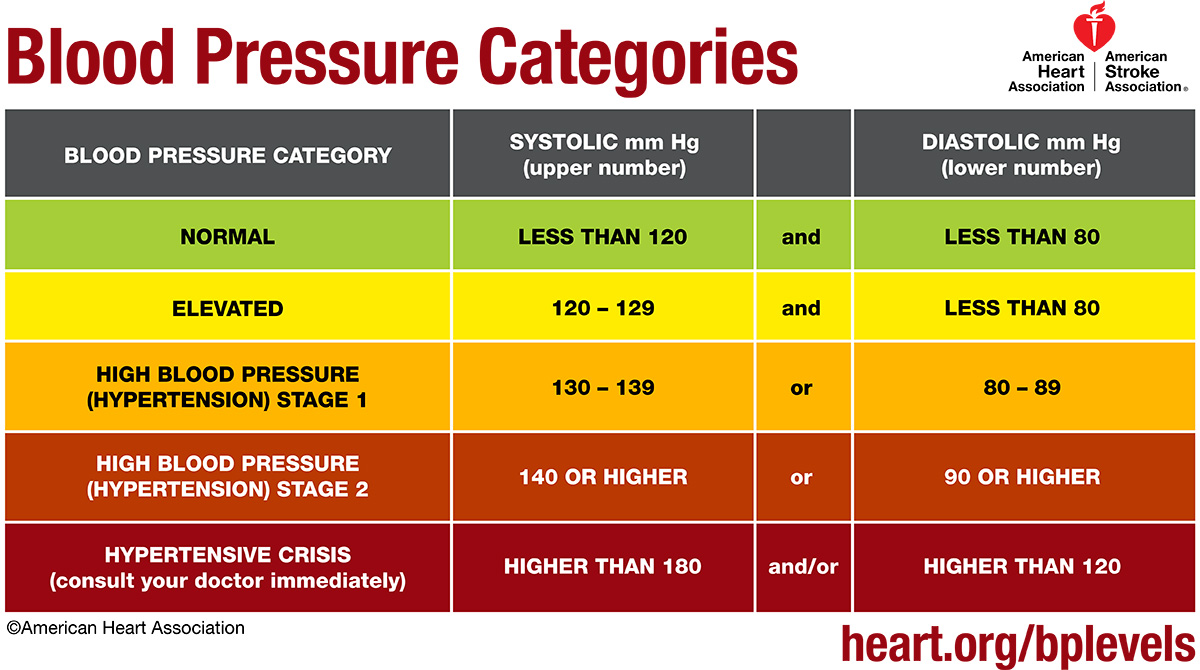Hypertension
What is Hypertension?
High blood pressure (HBP or hypertension) is when your blood pressure—the force of your blood pushing against the walls of your blood vessels—is consistently too high.
The primary way that high blood pressure cause’s harm is by increasing the workload of the heart and blood vessels—making them work harder and less efficiently.
Over time, the force and friction of high blood pressure damages the delicate tissues inside the arteries. In turn, LDL (bad) cholesterol forms plaque along tiny tears in the artery walls, signifying the start of atherosclerosis.
The more the plaque and damage increases, the narrower (smaller) the insides of the arteries become which raises blood pressure and starts a vicious circle that further harms your arteries, heart and the rest of your body. This can lead to other conditions ranging from arrhythmia to heart attack and stroke.
Measuring Blood Pressure
Your blood pressure is recorded as two numbers:
- Systolic blood pressure (the first number) – indicates how much pressure your blood is exerting against your artery walls when the heart beats.
- Diastolic blood pressure (the second number) – indicates how much pressure your blood is exerting against your artery walls while the heart is resting between beats
American Heart Association Blood Pressure Normal Levels

In the United States approximately 77.9 million (1 out of every 3) adults have high blood pressure. The prevalence of hypertension increases with age:
- 7.5% in adults age 18–39
- 33.2% in adults age 40–59
- 63.1% in adults age 60 and over.
Symptoms of High Blood Pressure
- Most of the time, high blood pressure (HBP, or hypertension) has no obvious symptoms to indicate that something is wrong. Many people with high blood pressure do not even know they have it. The evidence shows that high blood pressure does not cause headaches.
- High blood pressure develops slowly over time
- High blood pressure cannot be cured. It can be managed effectively through lifestyle changes and, when needed, medication.
Negative Effects of High Blood Pressure
- Heart attack — High blood pressure damages arteries that can become blocked and prevent blood flow to the heart muscle.
- Stroke — High blood pressure can cause blood vessels in the brain to clog more easily, or even to burst.
- Heart failure — The increased workload from high blood pressure can cause the heart to enlarge and fail to supply blood to the body.
- Kidney disease or failure — High blood pressure can damage the arteries around the kidneys and interfere with their ability to filter blood effectively.
- Vision loss — High blood pressure can strain or damage blood vessels in the eyes.
- Sexual dysfunction — High blood pressure can lead to erectile dysfunction in men or lower libido in women.
- Angina (Chest Pain) — Over time, high blood pressure can lead to heart disease
- Peripheral artery disease (PAD) — Atherosclerosis caused by high blood pressure can cause a narrowing of arteries in the legs, arms, stomach and head, causing pain or fatigue.
Managing your Blood Pressure is a Lifelong Commitment
The following lifestyle changes will help you in managing your blood pressure:
- Eat a well-balanced diet that's low in salt
- Limit alcohol
- Enjoy regular physical activity
- Manage stress
- Maintain a healthy weight
- Quit smoking
- Take your medications properly
- Work together with your doctor